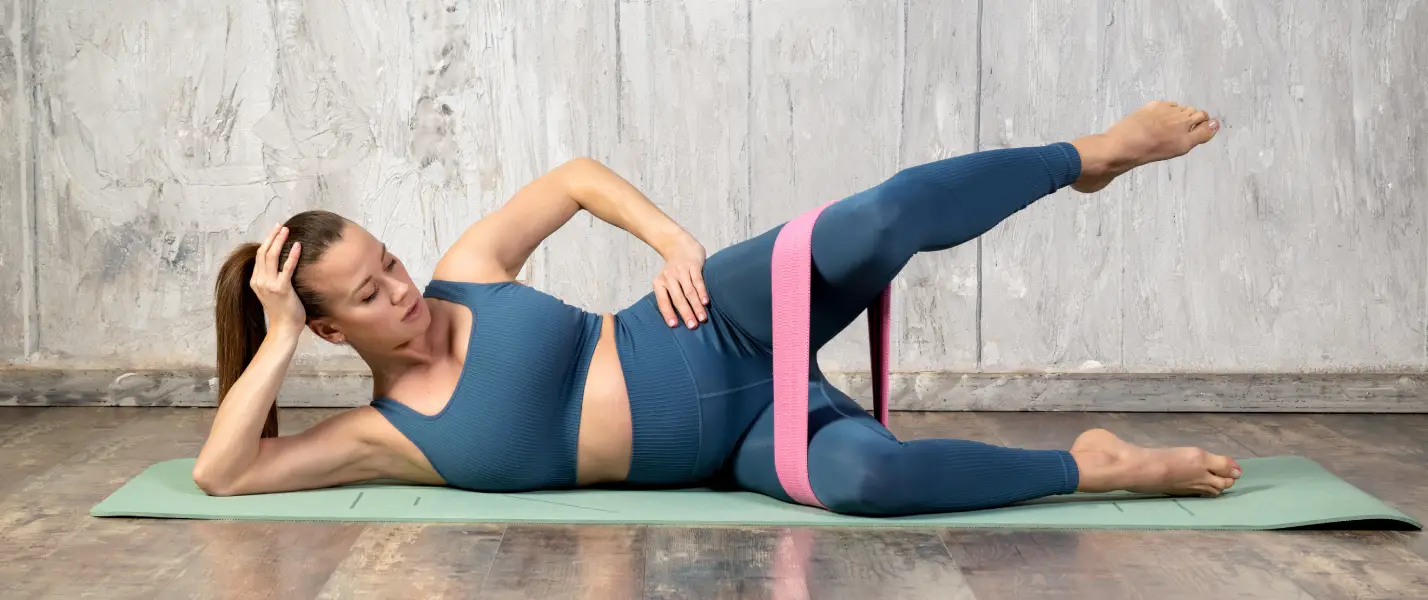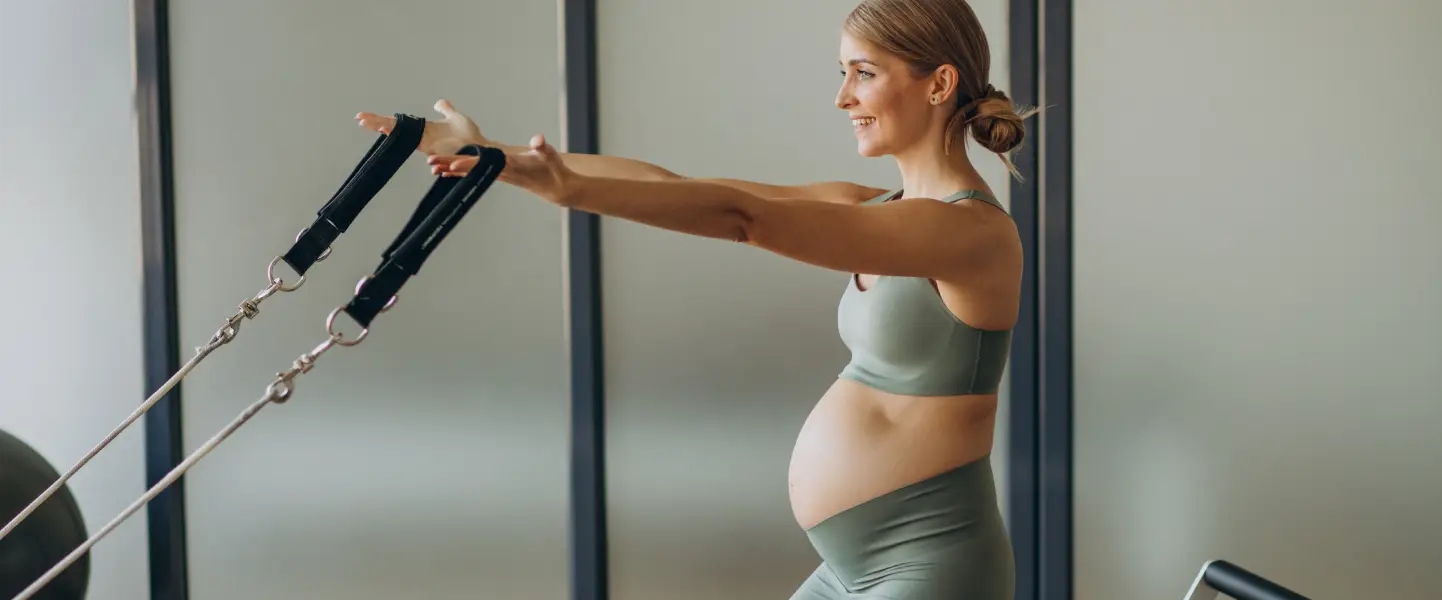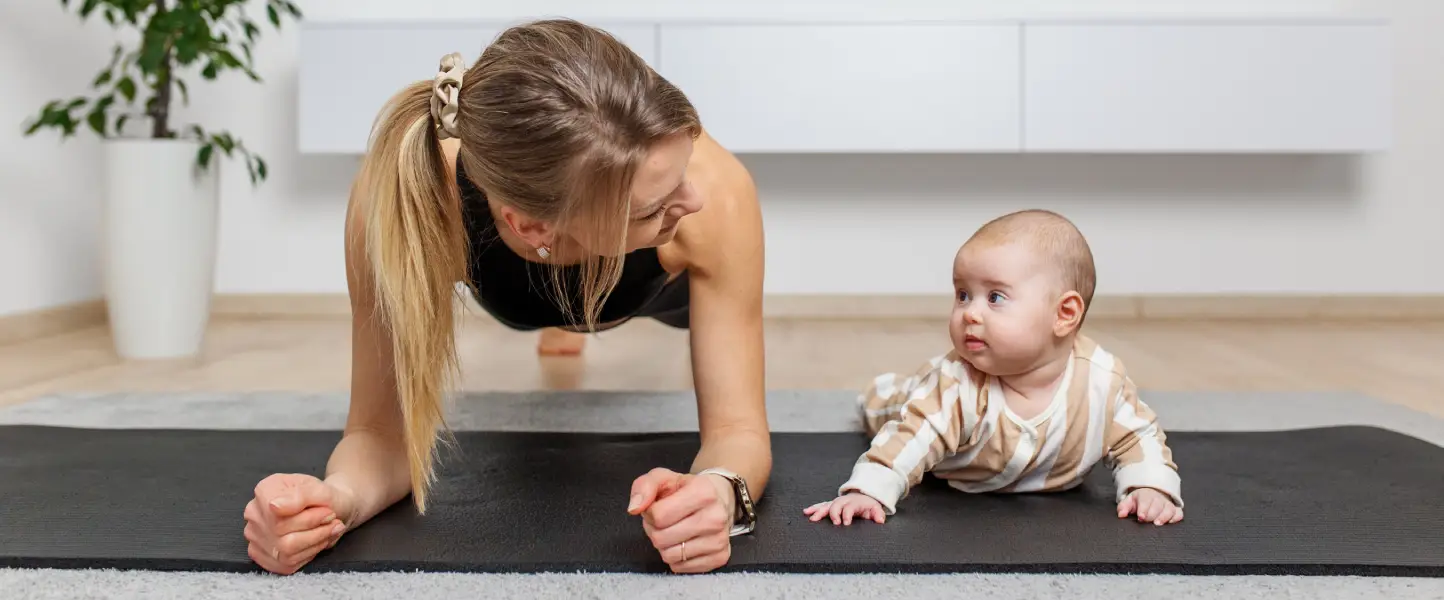We use cookies to help provide you with the best possible online experience.
By using this site, you agree that we may store and access cookies on your device. Cookie policy.
Cookie settings.
Functional Cookies
Functional Cookies are enabled by default at all times so that we can save your preferences for cookie settings and ensure site works and delivers best experience.
3rd Party Cookies
This website uses Google Analytics to collect anonymous information such as the number of visitors to the site, and the most popular pages.
Keeping this cookie enabled helps us to improve our website.

Pregnancy and After Giving Birth
During Pregnancy
Staying active during pregnancy is one of the best things you can do for both your own health and your baby’s development. Physical activity is safe and recommended, and it’s never too late to start*. Regular physical activity can help improve your mood, support better sleep, and reduce common pregnancy symptoms like backache, ankle swelling, and constipation. It also prepares your body for labour and helps with recovery after birth.
Aim to keep moving in a way that feels good for your body. Activities such as walking, swimming, gentle cycling and yoga all can make a difference. Keeping active during pregnancy can also lower the risk of diabetes in pregnancy, high blood pressure, and excessive weight gain. And it may even help with your baby’s healthy growth by supporting the placenta and improving oxygen flow. Staying active can help with your mental wellbeing too. It’s completely normal to feel a bit up and down during pregnancy, and regular movement can help reduce stress and boost your mood. Physical fitness helps with the experience of labour and recovery after childbirth. Every bit of movement helps!
During low risk and uncomplicated pregnancies, activities should match pre-pregnancy levels and include muscle strengthening exercises twice a week. Vigorous exercise should be avoided if you have been previously inactive. A little movement every day goes a long way.
If your pregnancy is high risk or you are not sure, check with your midwife or healthcare provider.

Aim for 30 minutes of physical activity a day
This includes brisk walking, swimming, dancing around the living room, or even a gentle fitness video. Here are some easy, bump-friendly ideas to keep moving:
- Pre-natal yoga or Pilates
- Walks in the park or around your local area
- Dancing at home or at Zumba or Ceroc class
- Pre-natal aqua aerobics
- Online home workouts

Make sure you consider
Do as you feel and stop if you have any discomfort. If you are taking part in a class or exercise group, let the instructor know about your pregnancy. They may be able to suggest alternative moves or things to avoid. Avoid lying flat on your back for long periods after 16 weeks, as it can reduce blood flow and cause faintness. Avoid contact sports with a risk of impact, such as kick boxing, judo, rugby, football or hockey.
7 Day Timetable
Here is a 7-day timetable you could try, to include 30 minutes of activities per day
Perfect for Pregnancy
A weekly calendar to boost energy, ease aches, and prepare your body for birth.
Remember to do pelvic floor exercises every day
30 minute duration
MONDAY
Dancing

Put on your favourite music at home or join Zumba or Ceroc class. Great for mood and light cardio
TUESDAY
Pre-natal yoga

Try a gentle yoga session online or in your area. This helps focus on breathing and flexibility
WEDNESDAY
Home workout

Try an online video for Pelvic floor exercises, Pelvic tilt exercises and stomach strengthening exercises
THURSDAY
Swimming

Join a pre natal swim class or do gentle water walking. Water supports your body and reduces joint strain
FRIDAY
Pilates

It helps to strengthen your pelvic floor. It helps you get ready for labour and birth by helping you relax and improving strength and flexibility
SATURDAY
Social walk

Make your activity social by walking with someone you enjoy spending time with
SUNDAY
Bike ride

This will help improve muscle strength which helps improve your balance and posture and ease back pain
After Pregnancy
Staying active after having a baby is one of the best ways to support your physical and emotional recovery. Physical activity helps boost energy, ease tiredness, and lift your mood – something every new parent can benefit from. It can also help reduce the risk of postnatal depression, ease anxiety, and support better sleep quality (even if it is very disrupted!). Movement is a powerful tool for mental wellbeing, helping you feel more like yourself again.
Straight after birth you can start with daily pelvic floor and core exercises. These help to regain strength, improve bladder and bowel control, prevent future issues like incontinence and pelvic organ prolapse, and aid in overall recovery and healing. In the first 12 weeks after childbirth, you don’t have to jump straight back into high-intensity workouts, gentle movement is a great place to start. You can build up gradually to more intense physical activity. Begin with walking around your local park and doing pelvic floor exercises at home. You can then aim for more moderate activities like swimming, fitness classes, or home workouts. Over time, aim for at least 150 minutes of moderate activity per week, plus muscle-strengthening exercises twice a week.

Top tip
Regular activity can also help with improving posture and strength which are especially important when lifting and carrying your baby. Physical activity can also support your body’s return to pre-pregnancy weight. Aim for 30 minutes of physical activity a day. The movement can be done in short bursts around your baby’s routine, take a look at the activity recommendations for Under 5’s for ways you and your baby can be active together.
Aim for 30 minutes of physical activity a day. This could be anything from a brisk walk with the buggy to a mum-and-baby fitness class or a gentle yoga flow while baby naps. Here are some ideas to help you get moving:

Activity ideas
- Post natal yoga or Pilates
- Pelvic floor and core rehab exercises
- Pram walks in the park or around your local area
- Dancing at home or at Ceroc class
- Post natal swimming classes
- Home workouts
7 Day Timetable
Here is a 7-day timetable you could try, to include 30 minutes of activities per day
Rebuild and Recharge!
A weekly calendar to restore strength, boost mood, and support healing after a baby!
Remember to do pelvic floor exercises every day
30 minute duration
MONDAY
Dancing

Put on your favourite music and gently dance with your baby. Great for bonding and cardio
TUESDAY
Post-natal yoga

Try a gentle yoga session online or in your area. This helps focus on breathing and flexibility
WEDNESDAY
Home workout

Try an online video for Pelvic floor exercises, Pelvic tilt exercises and stomach strengthening exercises
THURSDAY
Swimming

Join a post natal swim class or do gentle water walking. Water supports your body and reduces joint strain
FRIDAY
Pilates

It helps to strengthen your pelvic floor. It will improve strength and flexibility
SATURDAY
Social walk

Walk with your pushchair with someone you enjoy spending time with. It keeps motivation up and is great for mental wellbeing
SUNDAY
Core and pelvic floor

Practice pelvic floor exercises and gentle core movements like heel slides and bridges. Start slow and build up








